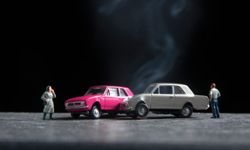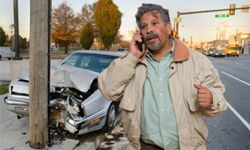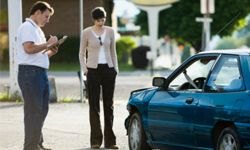Unless you're trying to score points in a demolition derby, attempt insurance fraud, or raise your national profile as a NASCAR driver, odds are, you don't ever want to be in a car wreck.
An auto accident can ruin your entire day. In addition to the inconvenience of missing work or a crucial appointment, you also have to deal with damage to your car, liability issues, possible traffic citations and even injuries in some unfortunate cases.
Advertisement
At the risk of sounding like a defensive driving video, here are some statistics: the National Highway Traffic Safety Administration reports there were 2.24 million crashes with injuries in the U.S. in 2010. The good news is that since cars are safer than ever before, fatal crashes are down to their lowest levels in 60 years [source NHTSA].
Even so, most drivers are likely to be involved in a car accident at least once in their lives. You can be the safest and most cautious driver around, but that doesn't save you from the person who careens through a red light and into your car because they were attempting to send a text message while they were driving.
After you're involved in an accident, there are steps you must take to ensure your own safety, the safety of the other driver or anyone else involved in the wreck and that everything has been properly documented for law enforcement and insurance reasons. There are also some things you should never, ever do after a wreck. Those things are what we will cover here.
In this article, we'll learn five things you should NOT do after a car accident. Avoid these foolish and often illegal mistakes, and you should be back on the road in no time flat -- with a little extra wisdom and experience under your belt, too.


